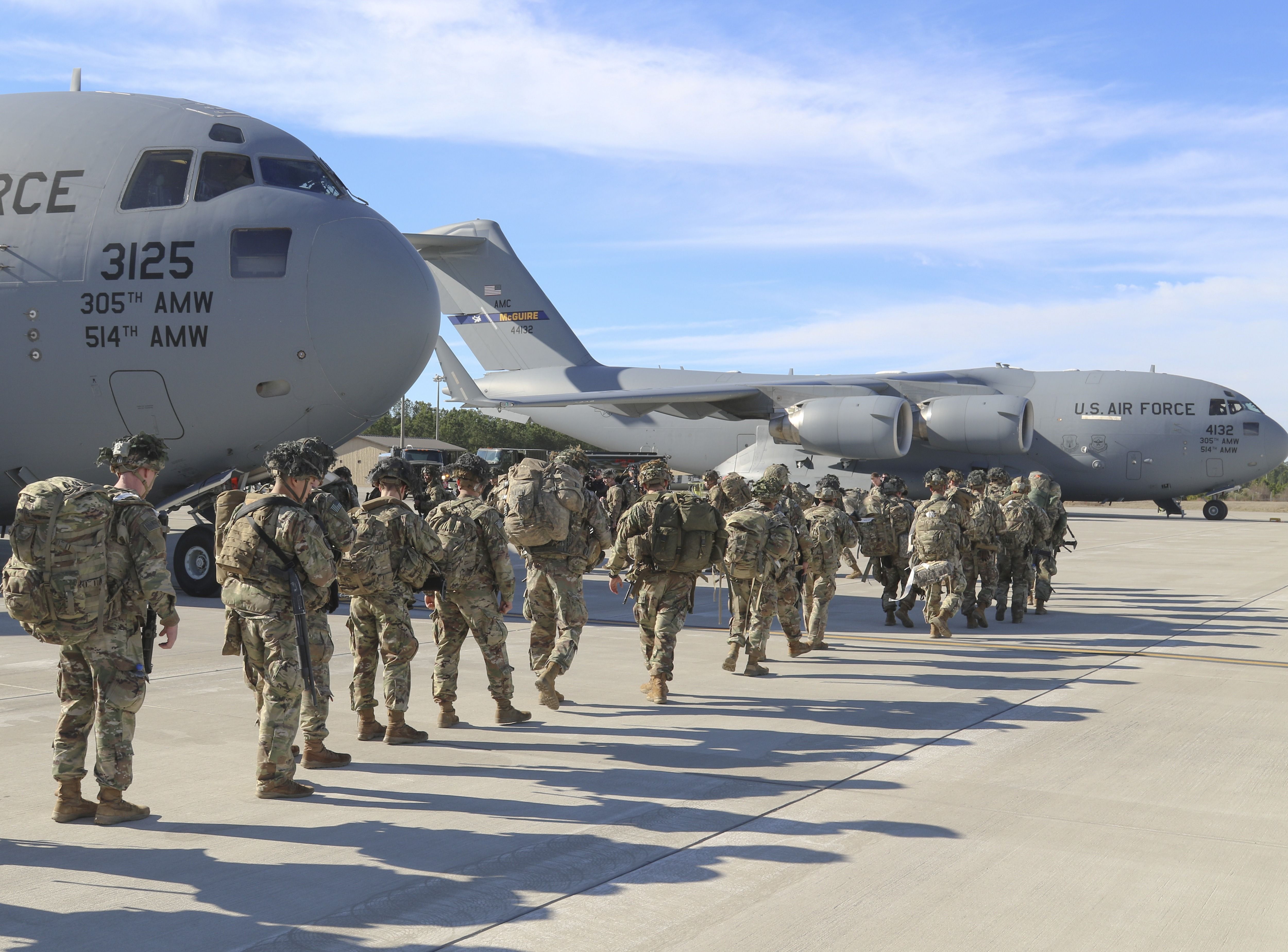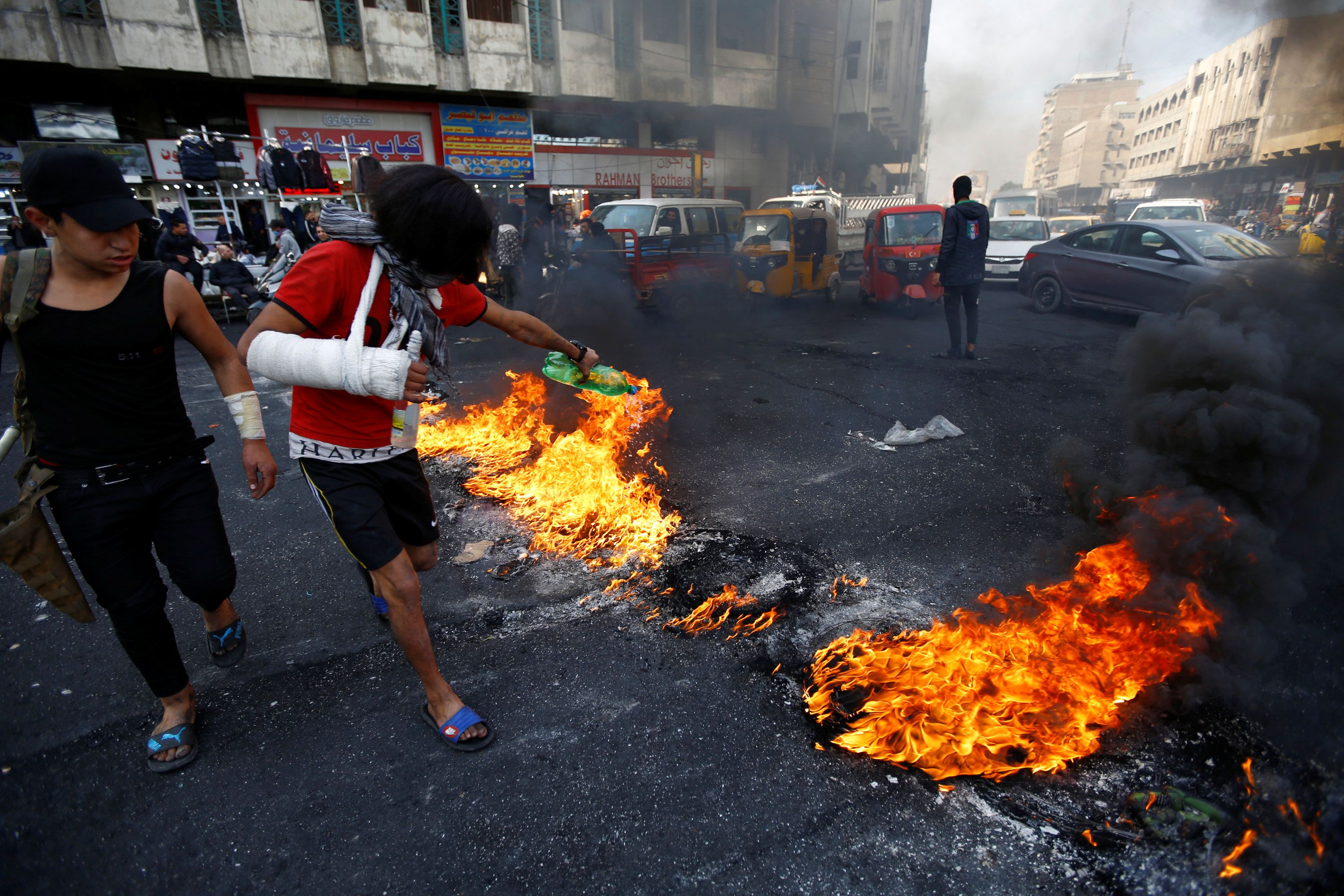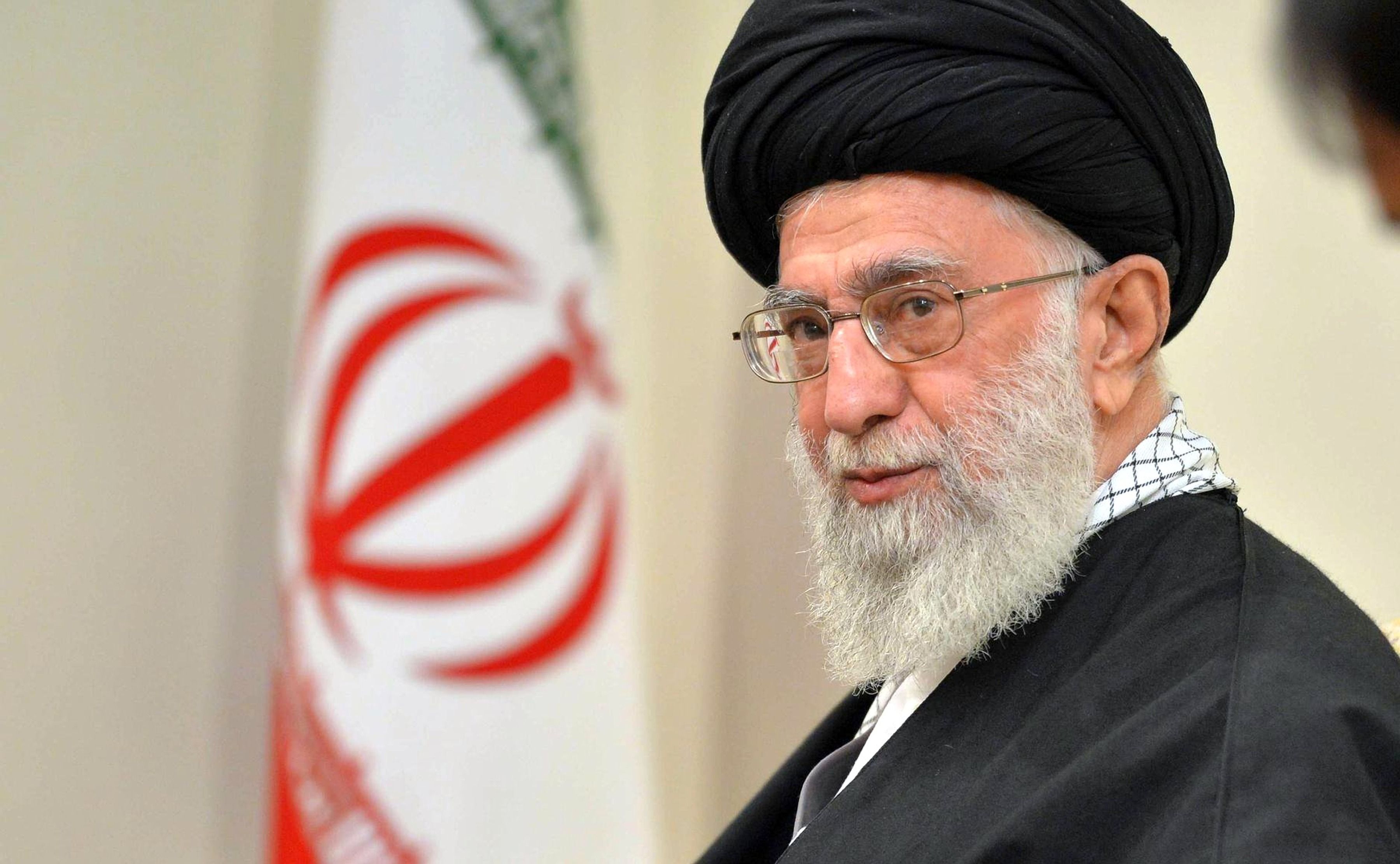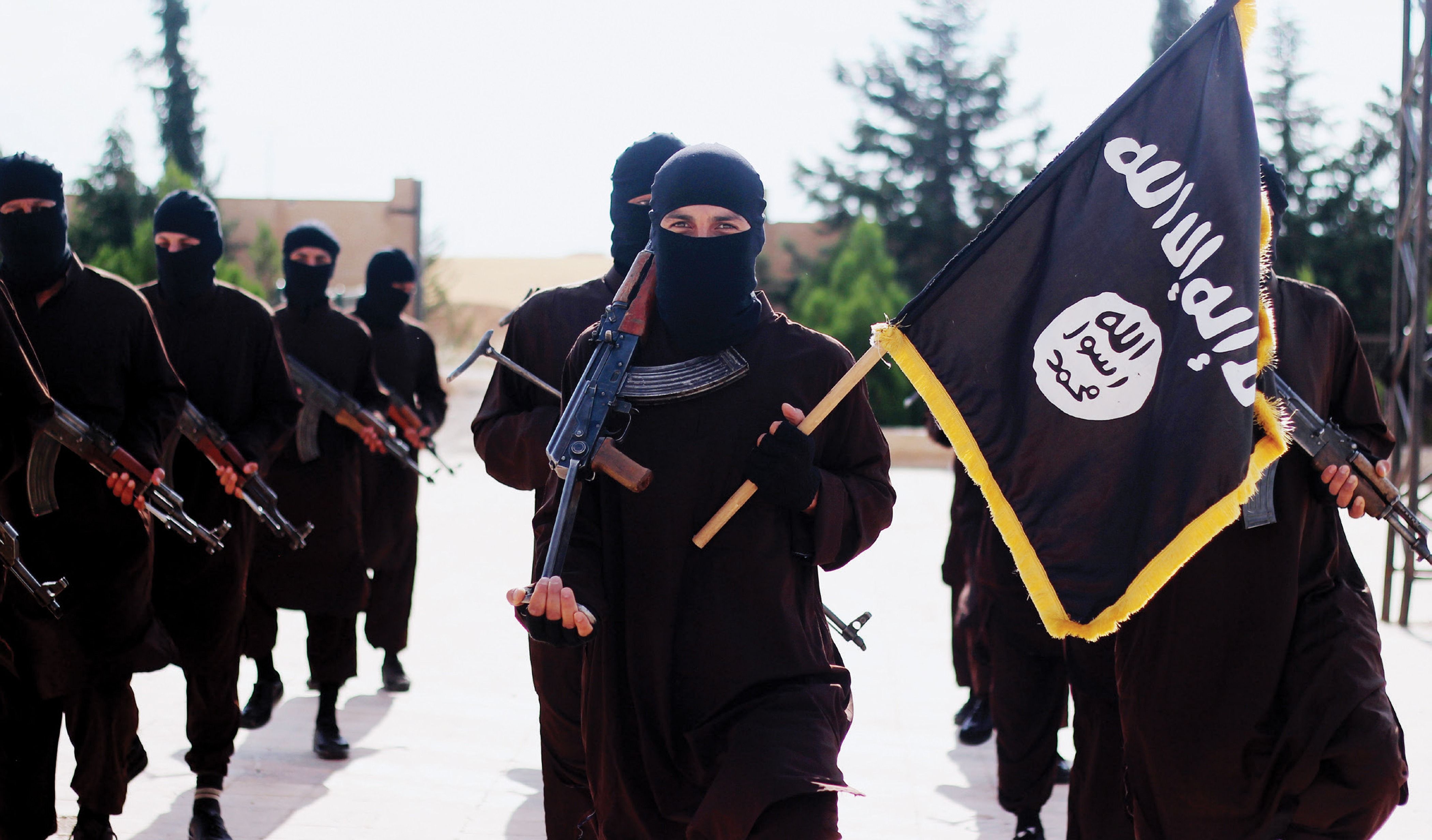Foreign Military Presence in Iraq in Light of the Iran-U.S. Rivalry

Assassination and Rivalry
When Soleimani was killed in a U.S. airstrike in Baghdad on 3 January, the commander of the Iraqi Kataib Hezbollah (Hezbollah Brigades) Abu Mahdi al-Muhandis died alongside him. The armed group was one of the 40 Popular Mobilisation Units (PMU), mostly pro-Iranian militias, officially integrated within the Iraqi security forces in 2018. The assassination of its commanders was the result of increased tensions between the U.S. and Iran. In December last year, there were a series of clashes between Kataib Hezbollah and U.S. forces in which an American military contractor and 24 militia fighters were killed. Consequently, a group of Iraqi protesters, some of whom carried Kataib Hezbollah flags, attacked the American embassy in Baghdad. The U.S. accused Soleimani and the pro-Iranian militias in Iraq of organising the embassy attack and then killed their commanders. In retaliation, Iran fired ballistic missiles at the Iraqi airbases Al-Balad and one near Irbil where U.S. soldiers were based. Iran had warned the Iraqi authorities about the incoming attacks, so no one was killed, although some were wounded.
The events at the turn of 2019 to 2020 were spurred by the rivalry between the U.S. and Iran over Iraqi territory. It had intensified when Donald Trump took office in 2016 and his administration adopted a policy of “maximum pressure” on Iran. Similar incidents, though on a smaller scale, have occurred in the past—in September 2018, pro-Iranian militias attacked the American embassy in Baghdad with rockets and mortars, though they failed to enter the grounds, and Basra airport in response to the breaking into the Iranian consulate in Basra by demonstrators protesting deteriorating living conditions and the growing influence of PMUs in Iraq. The rivalry carried out on Iraqi territory affects how the U.S. and Iran are being perceived by Iraqis. According to the latest Arab Barometer, 57% perceive the U.S. and Israel as the greatest threat to Iraq’s security while 31% pointed to Iran.
Iraqi public opinion holds more weight in light of the mass anti-government protests, the largest since 2003. The demonstrations were sparked by frustration with corruption, unemployment, the collapse of municipal services, and reluctance in Iraqi politics to Iranian meddling. In November 2019, the protests, which Iran perceived as U.S. interference, led to the resignation of Iraqi Prime Minister Adil Abd al-Mahdi. Mahdi served as the interim head of government until 1 February when President Barham Salih appointed a new prime minister, Mohammed Allawi. After the U.S. carried out an attack on Iraqi territory, killing an Iraqi citizen, without prior notice to the authorities, the anti-Iranian slogans began to be matched with those opposing the U.S. presence in Iraq. The state authorities, in struggling with the internal crisis, could not remain idle.
The Reaction of the Iraqi Authorities
After the assassination of Soleimani and Muhandis, and the plainly instrumental treatment of Iraqi territory by the U.S., the Iraqi authorities demanded the withdrawal of all foreign military forces from the state. Parliament on 5 January passed a non-binding resolution calling for terminating foreign missions in Iraq. Voting was boycotted by the majority of Sunni and Kurdish representatives—only 168 out of 328 MPs were present during the vote (only three votes over the quorum).
Former Prime Minister Mahdi met with the president of the Kurdistan Region of Iraq, Nechirvan Barzani, who emphasized the role of the Global Coalition in the fight against ISIS and good relations of Iraqi Kurds with the U.S. Like the Sunni parties, he opposed the withdrawal of American troops from Iraq, particularly over concerns about the resurgence of ISIS, the strengthening role of the PMUs, and fear of deepening ethno-sectarian divisions in light of the mass protests. The U.S. authorities so far have rejected discussing the termination of American operations in Iraq, and President Trump declared sanctions would be imposed on Iraq if it pushed out the U.S. forces.
International Military Forces in Iraq
The foreign military presence in Iraq includes a NATO training mission (about 500 soldiers who do not take part in combat), the Global Coalition (excluding U.S. forces, it numbers about 3,000 soldiers from Italy, Germany, Australia, and other countries) and American personnel at military bases in Iraq (about 5,200). Among the consequences of the growing tensions and passage of the resolution was the suspension of some Coalition troops and the NATO mission and the relocation of some foreign soldiers (e.g., British and German).
The purpose of the NATO training mission in Iraq is to strengthen the Iraqi security forces and advise the Ministry of Defence and other state institutions, including on combating terrorism. A Polish contingent is training Iraqi soldiers on the maintenance of military equipment.
The Coalition, present in Iraq since 2014 with substantial U.S. support, played a key role in the fight against ISIS. Aside from foreign military powers, the Iraqi army, PMU militias, and Kurdish Peshmerga also fight ISIS. In 2019, the terrorist group still had sufficient forces to intensify attacks in northern Iraq. Kurdish soldiers present in that area fear that ISIS will reorganise as insurgents. The Iraqi army, composed of 64,000 soldiers but weakened by corruption, poor management, the “ghost soldier” phenomenon, lack of training, and unstable economic situation of the state, is unable to lead an effective fight against ISIS. In this regard, the support of U.S. branches and their intelligence and logistics capabilities are important to prevent the rebirth of ISIS. Mahdi, during a January meeting with a NATO delegation in Baghdad, proposed that the Alliance mission partially take over some of the Coalition’s operations. This solution would somewhat comply with the parliament resolution while maintaining the presence of Western troops in Iraq.
Conclusions and Perspectives
The threat of U.S. sanctions and a resurgence of ISIS, on the one hand, and the fear of further attacks by pro-Iranian militias, on the other, are pushing the Iraqi authorities to manoeuvre between Iran and U.S. influence. The boycott by Sunni and Kurdish parliamentarians of the vote on removing foreign military units indicates that the resolution may exacerbate ethno-sectarian tensions in Iraq. To avoid this, the state authorities cannot openly stand on either side of the U.S.-Iran dispute. While the vote was a response to the American attack, further efforts to completely withdraw foreign troops from Iraq are unlikely.
The complete termination of foreign missions would weaken the Iraqi army and the fight against ISIS. It would also enable the PMUs to take over as the dominant security institution in the country. Due to the nature of these organisations—their internal divisions and the dependence of some units on pro-Iranian political parties in Iraq—such a situation would impede the strengthening of Iraqi state structures. However, further limiting the foreign forces’ role and moving the Coalition’s activities over to the NATO mission per the suggestions voiced by Mahdi, are worth considering. This would allow maintaining operational capabilities to combat ISIS while respecting the demands of Iraqis.
The chance of open armed conflict between the U.S. and Iran is low, but the Iranian attacks on American and allied targets in Iraq and throughout the Middle East may intensify. This worsens the security of troops in Iraq. Further attacks on American targets in Iraq also may be aimed at redirecting protesters’ anti-Iranian sentiment towards the United States. De-escalation of the U.S.-Iran conflict should, therefore, be accompanied by joint efforts between Allawi’s government and the United Nations to calm the internal situation in Iraq, reforming the electoral system, releasing arrested demonstrators, and fighting corruption. Overcoming the political crisis will enable an improvement in Iraq’s economic situation and allow the NATO mission to continue to strengthen the Iraqi security forces, which, in turn, will have a positive impact on combating ISIS and creating a counterweight to the pro-Iranian militias.





